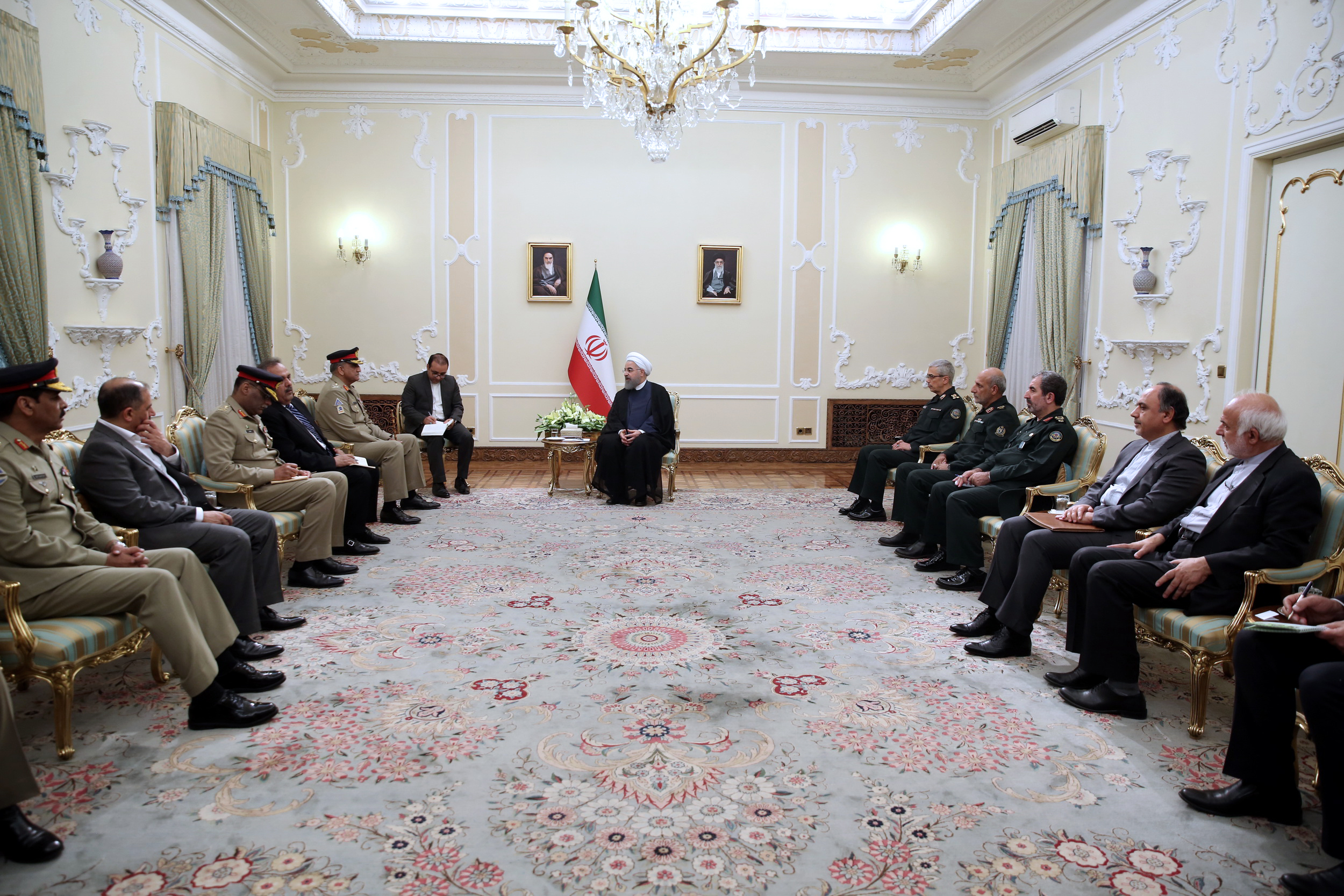Welcoming development and deepening of Tehran-Islamabad defence and military cooperation to consolidate stability and security in the region, President Rouhani stated: "Military and defence cooperation of the two countries, must be developed along with relations and cooperation in the fields of politics, economy and culture".
Dr Hassan Rouhani met with Chief of Army Staff of the Pakistan Army General Qamar Javed Bajwa and said: "The Islamic Republic of Iran is determined to have strong, brotherly and close relations with its regional neighbours, including Pakistan, and these relations are undoubtedly what the two nations want".
The depth of the relationship between the two nations has now gone beyond political relations between the two countries, he added.
"Given the will of the two governments of Iran and Pakistan to promote relations and cooperation between armed forces, cooperation can be promoted by developing training and joint manoeuvres," he said, adding that the history of Iran and Pakistan's military and defence cooperation dates back to decades ago and today we are ready to develop these relations.
Dr Rouhani also described terrorism and sectarian and ethnic disagreements as two main problems of the World of Islam today and emphasised the role of some powers in creating and reinforcing these problems and differences in the region, saying: "Powers do not have interest in unity and brotherhood among Muslims because if this unity and brotherhood is strengthened, then Islamic countries will be able to solve problems without the presence of outsiders".
Referring to the two countries' common views on the need to maintain unity among Islamic countries and the fight against terrorism and the role of some powers in creating these problems, the president said: "Iran-Pakistan cooperation can provide the context for greater unity among Islamic countries".
Our goal is to strengthen relations between Islamic countries, and there is no doubt that disagreements between Islamic countries can be resolved through dialogue, he continued.
Dr Rouhani also described improving security of the common borders of the two countries imperative and said: "The borders between Iran and Pakistan should be frontiers of friendship, development and tourism between the two nations, and we should not allow some terrorist groups promote insecurity in these borders".
The president said that Iran's goal in the region was to strengthen brotherhood and stability and unity among countries of the region, saying: "Terrorism is a problem for all countries of the region. Iran's presence in Iraq and Syria is aimed at fighting ISIS and other terrorist groups at the invitation of the governments of these countries, the positive results of which are now obvious for these two countries and the region; but the big question is that what is the purpose of military strikes, destruction and killing of the Yemeni people?"
Chief of Army Staff of the Pakistan Army also called Iran-Pakistan relations fraternal, deep-rooted and deep-seated, and insisted that Islamabad wanted to develop its military and defence cooperation with Tehran, along with historical and economic relations.
General Qamar Javed Bajwa said: "The people of Pakistan have consistently shown special respect to the Iranian people, especially because of their courage and resistance against powers and invaders, and we are determined to cement relations with Iran in all areas".
Referring to the spread of terrorism and takfiri extremism in the region, he called for an alliance between Islamic countries and said: "The disputes between some Islamic countries should be resolved at the negotiation table and Western countries should not be allowed to fan these disputes with the aim of selling their weapons".

